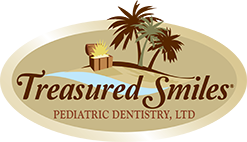Heart Health and Dental Care

If you have a heart condition or pacemaker or you are at risk for heart disease, then you may visit a cardiologist to treat your condition and reduce the risk of heart attack, stroke, or other complications. While it may seem odd to visit a dentist to treat your heart condition, it's actually an important part of your overall care.
The cardiovascular system and other bodily systems aren't isolated from one another, so a holistic approach to your heart-health is important. Here are two steps patients with heart conditions should take with their dental care.
1. Make Frequent Dental Visits Part of Your Heart-Health Routine
Researchers and doctors have examined the link between oral health and overall health and have found that there is a link between gum disease and heart disease. A person with gum disease may increase their risk of heart disease by 20 percent. The risk of heart attacks has also been shown to be higher in people with cavities.
Why would gum disease or cavities raise the risk of heart problems? While no causality has been proven, oral health problems increase inflammatory responses in the body, which can lead to the narrowing of arteries. Furthermore, a type of oral bacteria called Streptococcus gordonii — a contributor to plaque on teeth — can increase the risk of blood clots that cause heart problems.
With all this data in mind, it's important for people with heart conditions or predispositions to visit their dentists more often for preventative care. Dentists can help you eliminate gum disease with scaling and root planing. Dentists can help to remove oral bacteria with prophylaxis, fillings, and other restorative procedures.
Even if you have your oral hygiene under control, it's important to visit your dentist at least once a year since the American College of Cardiology has found that adults were able to reduce risks of heart events by 14 percent compared to those who didn't make appointments.
Dental visits are important since your provider can also show you how to properly maintain your oral hygiene and improve your heart health outside of in-office appointments. For instance. One study found that people who brushed an extra time during the day could reduce cardiovascular risk by 9 percent.
2. Let Your Dentist Know About Current Heart Conditions
When you attend your dental visits, it's important for you to disclose any current heart conditions or implantations, like pacemakers, to your dentist. Certain dental tools and medications can affect heart conditions, so if you don't give your dentist an updated medical history, they won't be able to use safer methods and alternative medications.
For example, the American Dental Association says that some studies have shown that electronic dental devices may cause interference with cardiac implants. Your dentist can use a different type of dental scaler to reduce this interference. A dentist can also remove cords and avoid setting certain devices near patients' pectoral region to reduce risk of interference.
Do you need to undergo a procedure where local anesthetic is used? If so, it's important to disclose your health history so that the dentist can avoid anesthetics with epinephrine. Epinephrine is a vasoconstrictor, meaning that it narrows blood vessels.
While vasoconstrictors can be beneficial for some patients to reduce heavy bleeding, they can be dangerous for patients with heart conditions since these medications could elevate blood pressure and increase heart rate. Your dentist can opt for a non-epinephrine anesthetic or talk with your cardiologist to see which option would be better for your case.
Lastly, it's important for your dentist to be aware of your heart condition so they can be ready for a medical emergency. Dentists can have oxygen or nitroglycerin on hand if you are a high-risk individual.
With the right preparations, your dental visits should be very safe and the dental instruments and medications should benefit your heart condition rather than exacerbate it. Reach out to us at Treasured Smiles Dentistry Adult & Cosmetic Dentistry for more information today.
